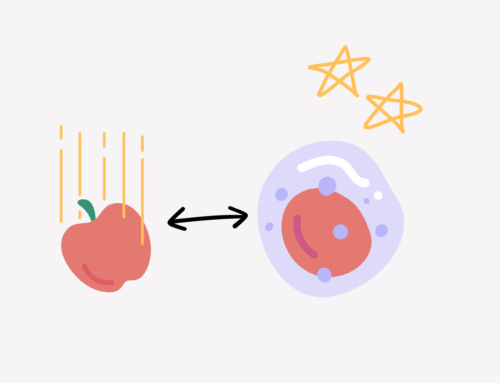

Are you wondering about what the most impressive AP classes for college applications are? Or which would be most useful for your intended major? Or maybe you’re stressed about not being able to handle certain AP classes?
As a high schooler, I struggled with these same questions. I was often unsure of which AP classes to take and chose certain ones simply because many classmates were taking them.
But now, having graduated with 15 AP credits, I’ve been able to reflect on the relative usefulness, importance, and difficulty of each AP class I took. In this article, I evaluate each of the following math and science AP classes (for a guide on AP humanities/social sciences and foreign language classes, check out Part 2):
- AP Biology
- AP Chemistry
- AP Physics I
- AP Physics C Mechanics
- AP Calculus AB
- AP Calculus BC
- AP Statistics
- AP Computer Science Principles
Quick note: The AP math and and science classes I haven’t taken are AP Physics 2, AP Physics C Electricity and Magnetism, AP Environmental Science, and AP Computer Science A. Therefore, I cannot comment extensively on them.
Here are the scoring systems I use to evaluate each class:
- Usefulness: didn’t learn much, decently applicable, super helpful
- Importance to colleges: meh, some weight, stands out
- Difficulty:
A walk in the park

Some stress but manageable

Rigorous, but if you push yourself hard enough, you can make it

I also include some useful tips that helped me earn 5’s on all my math and science AP exams. By the time you finish this article, I hope you will have a much better idea of which math and science AP classes to take and how you can succeed in them.
This post may contain affiliate links, which means that when you make a purchase through a link, I make a small commission at no extra cost to you.
Important Notes
Before we jump in, however, I want to mention a few important notes.
- The usefulness of a class depends largely on what you hope to study. I try to be as objective as possible in evaluating how applicable each class in the real world. However, make sure to keep your own interests in mind.
- I am by no means an admissions officer who knows exactly how AP classes are evaluated in a transcript. The “importance to colleges” rating I give is based on general trends I’ve seen and articles I’ve read.
- I also mention a few examples of colleges that offer credit for certain AP classes. However, it is important to keep in mind that credit offered varies largely depending on the college and your major.
- You should take the difficulty score I give with a grain of salt“”everyone has different strengths and weaknesses. AP classes are also taught differently at different schools. To account for the latter, however, I try to evaluate the difficulty based on the content of the final exam.
- Finally, while you should challenge yourself with AP classes in high school, you should not focus on stuffing your schedule with the “most impressive AP classes”. Evaluate your own strengths and weaknesses, as well as interests. When you genuinely enjoy a subject, you’ll likely gain more out of it. Additionally, applying for college is not a competition of who takes the most AP classes (for more information on what colleges look for, check out this post).
Ok, let’s jump in!
AP Biology

Usefulness: super helpful
AP Biology covers everything from the molecular basis of life to the dynamics of ecological systems. By taking this course, you’ll learn fascinating topics like how viruses multiply, how DNA is analyzed for crime scene investigations, and much, much more.
However, even if you aren’t interested in pre-med or other bio-related fields, AP Biology is still one of the most useful AP classes to take.
That is because the exam is mostly application. You’ll be provided with experimental data and asked to answer questions based on the data. Simply memorizing terms and facts won’t get you anywhere. Application is essential.
As such, taking AP Biology will make you a much better critical thinker. You will learn how to synthesize theoretical concepts with reality. You’ll also learn how to do step-by-step logical reasoning. These are skills important for any field.
Importance to colleges: stands out
AP Biology is a class that stands out to colleges due to its rigor. As an example, Harvard offers 8 credits for scoring a 5 on the exam. On the other hand, earning a 5 in another AP science””AP Environmental Science””would earn you 0 credits.
At Vanderbilt, scoring a 4 or a 5 in AP Biology earns you credit hours in two classes. On the other hand, no credit is given for AP Environmental Science.
In general, most highly selective colleges consider doing well in AP Biology to be an indicator of preparedness for their academic rigor.
Difficulty:

A lot of material is covered during the year, so the class is relatively fast-paced. Additionally, there are some concepts that definitely take longer to grasp, like cellular respiration and cell signaling pathways.
However, many topics seem overwhelming at first simply due to complex new terms (glyceraldehyde 3-phosphate dehydrogenase, I’m looking at you). Once you become familiar with the new terms (most of which have abbreviations anyway), things often begin coming together.
Tips that helped me:
- Use diagrams to study! There are so many complex molecular pathways and other biological processes that will only make sense if you study them visually.
- Pay attention in labs. There are several labs throughout the year involving enzymes, bacteria, DNA, and more. Many questions on the actual exam involve similar experiments. Additionally, putting consistent effort into labs will help you with data analysis and application during the final exam.
AP Chemistry

Usefulness: super helpful
AP Chemistry covers everything from atomic structure and molecules to thermodynamics. By taking this course, you’ll learn things like why sublimation (direct transition from solid to gas) occurs and how your body maintains a constant pH.
It is definitely one of the most useful AP classes to take if you’re interested in the science or engineering fields. AP Chemistry provides a solid foundation for more advanced college chemistry courses.
Also, like AP Biology, it teaches you critical thinking skills. This is because the exam requires lots of application””reading experimental procedures, interpreting graphs, and analyzing data tables.
Importance to colleges: stands out
AP Chemistry is one of the most impressive AP classes due to its rigor. For example, Columbia University offers credit for a score of 4 or 5 on the AP Chemistry exam. In contrast, credit is only offered for scoring a 5 in AP Biology.
In general, if you do well in AP Chemistry, colleges will see that you are prepared for more advanced college chemistry courses.
Difficulty:

AP Chemistry is a relatively fast-paced course that covers a lot of information. Also, just memorizing terms and information is never sufficient. However, if you do lots of practice problems, you’ll begin to realize that the same rules always apply.
For example, balancing chemical equations may seem difficult at first. However, once you become familiar with the rules for balancing through practice, balancing equations will become second nature.
I’ve heard many students ask, “Should I take AP Chemistry if I’m not good at math?” However, the course only ever requires basic algebra. As long as you’re familiar with basic operations involving the four functions, exponents, and logarithms, the math shouldn’t present too many difficulties.
Tips that helped me:
- If you’re confused about a topic, search for videos by The Organic Chemistry Tutor. He does a fantastic job of breaking complex topics down into simpler terms. He also draws great visual diagrams and provides step-by-step explanations for problems.
- Memorize and know how to use all the formulas and constants on the formula sheet. You may refer to the formula sheet during the exam, but if you have to refer to it, it probably means you didn’t prepare sufficiently. Plus, flipping back and forth will make you feel disorganized and stressed.
AP Physics I

Usefulness: super helpful
AP Physics I is an algebra-based course that serves as a good stepping stone for more advanced physics courses. You’ll learn about how motion and energy work. Why do objects of different masses fall at the same speed? Why do you feel heavier going up an elevator? You will learn the answers to these questions and many more in the course.
AP Physics I is a great introductory course to mechanical physics for those interested in pursuing science or engineering careers. It also involves a lot more math than biology or chemistry, but it is all about application, not calculation.
Oftentimes, you won’t be provided with actual numbers to work with. You’ll be provided with variables and constant terms, so the course truly assesses your conceptual understanding.
By taking this class, I gained valuable logical reasoning and critical thinking skills that helped me significantly in other math and science classes throughout high school.
Importance to colleges: some weight
Despite being a difficult course with a notoriously low passing rate, I believe this course should only receive a score of “some weight”. This is because most highly selective colleges don’t confer any credit for the AP Physics I exam. Credit is usually only given for the AP Physics C exams.
That being said, AP Physics I is still a very valuable class to take. It is a great preparatory class for the AP Physics C classes, which can help you stand out more to colleges.
Difficulty:

AP Physics I was the first AP class I ever took, and it was hard. It was huge step up from anything I had taken in middle school.
Like the other AP science classes, there’s a lot of application involved, but also a lot more math. So if you’re wondering, “Should I take AP Physics I if I’m not good at math?” AP Physics I may present some difficulties. You’ll need to be comfortable with many precalculus topics, including trigonometry and vectors.
As I’ve mentioned, having a strong conceptual understanding is also super important. Otherwise, it’s very easy to make mistakes setting up equations and applying formulas.
Tips that helped me:
- Read the textbook. I know this isn’t a piece of advice anyone likes to hear. However, this is one class in which I believe reading the textbook actually helps a lot. I especially suggest reading the derivations of formulas. If you have a strong conceptual understanding of how a formula is derived, you’ll make fewer mistakes when applying it to actual problems.
- Don’t go with your “common sense”. If you’re solving a problem and decide to do something simply because you have a “feeling” it’s right, it’s probably not. For example, it would seem to make sense that heavier objects would fall faster than lighter objects. However, that is not the case. A good way to check if you really know the material is to see if you can provide a scientifically-based, logical explanation for every step you take. Not something like “Well, object 2 is lighter, so it should probably fall slower”.
AP Physics C: Mechanics

Usefulness: decently applicable
AP Physics C: Mechanics is basically AP Physics I but with calculus (and a few extra topics). It teaches you how calculus is integrated into solving physics problems.
Apart from that, however, there is truly very minimal new material.
Importance to colleges: stands out
By taking AP Physics C: Mechanics, you take a step further than most students to challenge yourself. I strongly recommend taking this course if it is offered and you are pursuing a science or engineering degree. Most colleges, even highly selective ones, confer credit for this class.
Difficulty:

The AP Physics C: Mechanics exam is arguably the most advanced science AP offered by the College Board, along with AP Physics C: Electricity and Magnetism. The multiple-choice section, in particular, is a time crunch, with 45 minutes provided to answer 35 questions. That’s just a little over a minute per question.
That being said, if you’ve taken AP Physics I prior to taking this course, many concepts should already be familiar.
Tips that helped me:
- Do lots of practice to increase your speed. Do many timed multiple choice sets. This will help increase your speed and make you more comfortable with the time constraints.
- Buy the Barron’s review book. Before taking the exam, I reviewed the entire AP Physics C: Mechanics section of the book. It covers all the topics in the course and provides harder questions than what’s seen on the exam. If you can do the questions in this book, you’ll be able to do the ones on the exam.
AP Calculus AB

Usefulness: decently applicable
AP Calculus AB provides a solid foundation for more advanced calculus classes. It covers several fundamental areas in calculus: limits, differentiation, and integration.
However, what you learn in AP Calculus AB is what is typically taught in just the first semester of AP Calculus BC. This is not such a bad thing, as you’ll have plenty of time to dwell on concepts and fully understand them. Many schools, in fact, require AP Calculus AB as a prerequisite for AP Calculus BC.
Importance to colleges: some weight
AP Calculus AB is mostly a stepping stone toward taking more advanced classes, including AP Physics C and AP Calculus BC. Some highly selective colleges confer credit for AP Calculus AB, but many also do not. This means that many colleges do not view the rigor of AP Calculus AB to be on par with college-level calculus classes.
Difficulty:

AP Calculus AB covers much less content than many other AP classes. The same types of questions show up on the exam every year. Therefore, as long as you do sufficient practice, none of the questions on the exam should appear unfamiliar.
Tips that helped me:
- Do all the homework. In my AP Calculus AB class, my teacher assigned lengthy Webassigns for each section of each chapter. Although it was often tedious work, working through all the problems helped the material stick. Also, during class tests and the final exam, I almost never saw questions that were unfamiliar.
- Know all the theorems by heart (don’t worry, there’s not that many). The exam will assess your ability to not just apply but be able to explain why you are able to use a given theorem.
AP Calculus BC

Usefulness: super helpful
AP Calculus BC covers all of the content in AP Calculus AB and goes beyond to include a few other topics, including polar functions, parametric functions, and series. If you were to jump right into AP Calculus BC, you wouldn’t miss out on anything. So if you’re wondering, “Should I take calculus AB or BC?” it depends on the pace you feel comfortable with.
AP Calculus BC is a super helpful class if you plan on taking more advanced math and science classes in the future. In my case, the class provided the foundation I needed to do well in multivariate calculus and differential equations the year after.
Importance to colleges: stands out
Almost all colleges offer college credit for a high score on the AP Calculus BC exam. This even includes MIT, Stanford, and Georgia Tech, which are top engineering schools with rigorous calculus classes. It is definitely one of the most important AP classes to take if you want to pursue a STEM major.
Difficulty:

AP Calculus BC is more difficult and fast-paced than AP Calculus AB. However, if you’ve taken AP Calculus AB, then you’ve already done half the work.
And even if you haven’t, the class is still totally doable. Like AP Calculus AB, the same types of questions show up on the exam every year. As long as you’ve done enough practice problems, you likely won’t see anything unfamiliar.
Tips that helped me:
- Like with AP Calculus AB, make sure to do all your homework. Once you’ve done enough problems, they’ll all begin looking familiar, just with different numbers.
- Know all the conditions for applying theorems and series comparison tests by heart. In the FRQ section, you’ll often need to explain why you are able to apply a particular theorem or comparison test.
AP Statistics

Usefulness: super helpful
No matter what field you go into””government, science, finance, you name it””some kind of research will be involved. When there’s research, there’s data. Data needs to be analyzed to make meaningful conclusions. And that’s where statistics comes in.
AP Statistics covers everything from valid study design to significance tests (used to determine if the results of a study are conclusive). It is a very comprehensive course that will provide you with a solid foundation for doing future research.
And even if you don’t think you’ll be going into a field involving big data and research, it is still one of the most useful AP classes to take. For example, we often take graphs and statistics presented in the news as fact. However, many are actually distorted or intentionally presented in a misleading way to achieve the publisher’s goal. Taking AP Statistics will prevent you from being misled and help you make better-informed decisions.
Importance to colleges: some weight
While AP Statistics is a very useful class, many highly selective schools do not award credit for even a score of 5. In fact, if you are interested in pursuing a STEM major and must choose between taking AP Calculus or AP Statistics, AP Calculus would be the better choice.
As an example, UC Berkeley only awards math credit for AP Calculus AB and AP Calculus BC, but not AP Statistics. The same holds true for many other highly selective schools.
Difficulty:

Although AP Statistics falls in the math category, it only involves basic algebra. As long as you know your four operations and maybe a little about exponents, you’ll know all the math you need.
The only perhaps difficult part is memorizing all the terminology and statistical tests. You need to know when to apply certain tests based on given scenarios. However, with practice, you’ll become very adept at recognizing patterns and implementing the same procedure each time.
Additionally, when I say that very little math is involved, I mean it. You are allowed to use a graphing calculator on the entire exam. Once you figure out how to run statistical tests on your calculator, you just need to plug in the numbers. Your calculator will do the math for you.
Tips that helped me:
- Instead of focusing on the math aspect of the class, focus on reading comprehension. Yep, that’s right. As my AP Statistics teacher liked to say, AP Statistics tests students’ reading comprehension more than their math abilities. Make sure to read each problem slowly and carefully.
- Memorize the conditions to apply each statistical test. While you won’t need to do the actual math for statistical tests, you will need to explain why a test can be applied in a given scenario.
- Be super familiar with your graphing calculator. There are a lot of different statistical tests you’ll learn throughout the year. However, they can pretty much all be run automatically on your calculator. If you know where each test is located in the menu, you will be able to answer questions very quickly.
AP Computer Science Principles

Usefulness: didn’t learn much
AP Computer Science Principles teaches you the basics of Internet functionality and security, as well as general coding principles. If you’re hoping to write fancy algorithms and create cool apps by the end of the year, this course probably won’t help you much. (Although I’ve never taken AP Computer Science A, I’ve heard from classmates that it is much more useful in actually teaching you how to code.)
The exam itself is also very short, with 2 hours provided to answer 70 multiple choice questions. Many questions test general knowledge of how the Internet works. Others require you to interpret pseudocode, the purpose of which is to help you eventually understand actual coding languages.
Unlike other AP exams, however, you’ll need to submit a digital portfolio, in which you develop your own computer program. Doing this project was honestly the most useful thing I did all year in the class. I decided to challenge myself by writing more difficult algorithms (but you honestly don’t need to if you don’t want to). The experience I gained helped me in developing more complex algorithms for a research project later on.
Importance to colleges: meh
According to the College Board, over 950 colleges offer credit for AP Computer Science Principles. However, because it is such a basic course, very little credit is usually offered. Most colleges do not offer credit at all.
If you hope to pursue a field related to computer science, taking AP Computer Science A will demonstrate your interest a lot better than taking AP Computer Science Principles.
Difficulty:

If you’re wondering what the easiest AP classes are, AP Computer Science Principles is definitely on the list. Despite being a “computer science” class, very little coding is actually required. You just need to understand the logical flow of code.
Tips that helped me:
- Buy a review book and read it. That is honestly all you need to succeed on the multiple choice. As long as you know general concepts about the Internet and coding, you’ll be prepared. I personally used the Barron’s review book, which was sufficient in preparing me for the exam.
- Read the digital portfolio rubric very carefully. Many classmates I know were proficient programmers but scored a 4 because of the digital portfolio (it accounts for 30% of your score). Make sure your program meets ALL of the requirements. Also, make sure to answer the associated questions clearly and concisely. If you’re confused about what graders are looking for, there are plenty of step-by-step tutorials online to assist you.
Conclusion
If you’ve reached the end of this post, thanks for reading this far! I hope you have a much better idea of which AP math and science classes are suitable for you.
Also, if you’re now wondering, “Which are the most impressive AP classes to take in the humanities/social sciences and foreign language categories?” I have a similar post on all the AP humanities and foreign language classes I took here.
If you’re curious about what colleges look for besides high-level coursework, check out this post, as well as my free high school planning workbook.
Which math and science AP classes are you planning on taking? Let me know in the comments below!

Learning With Angie is a place to share honest, unfiltered advice to promote student success. So if you’re a student (high school, college, or beyond) looking for tips on productivity, studying, personal growth, and more to reach your potential, this is the place! To read more about Learning with Angie, click here.


















